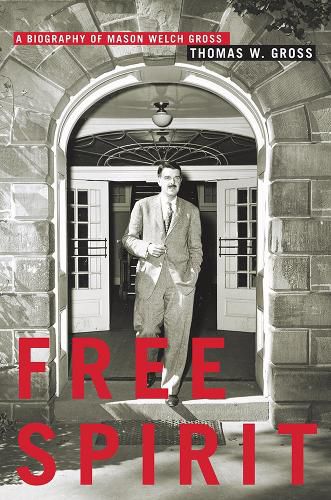Readings Newsletter
Become a Readings Member to make your shopping experience even easier.
Sign in or sign up for free!
You’re not far away from qualifying for FREE standard shipping within Australia
You’ve qualified for FREE standard shipping within Australia
The cart is loading…






Mason Welch Gross, philosopher, educator, athlete, and musician, was inaugurated as president of Rutgers in 1959, when American universities were seen as the key to America’s future success. Within ten years, during the turbulent sixties, with its struggles over civil rights and the Vietnam War that played out on college campuses, these same universities were viewed as seeds of discord and communism by a conservative populace that had grown tired of riots, inflation, and general unrest.
Mason Gross was instrumental in building Rutgers from a sleepy private college to a major state university, but he is best known for taking a stand on controversial public issues, including improving the educational opportunities for minorities and defending the civil rights of a professor who chose to speak his mind about Vietnam. This biography builds the story of how he came to believe so strongly about these issues, and why he was willing to stand up for what is right, eventually, and tragically, at the cost of his own health.
For his support of academic freedom and civil rights, in 1966 he received the prestigious Alexander Meiklejohn Award from the American Association of University Professors.
$9.00 standard shipping within Australia
FREE standard shipping within Australia for orders over $100.00
Express & International shipping calculated at checkout
Mason Welch Gross, philosopher, educator, athlete, and musician, was inaugurated as president of Rutgers in 1959, when American universities were seen as the key to America’s future success. Within ten years, during the turbulent sixties, with its struggles over civil rights and the Vietnam War that played out on college campuses, these same universities were viewed as seeds of discord and communism by a conservative populace that had grown tired of riots, inflation, and general unrest.
Mason Gross was instrumental in building Rutgers from a sleepy private college to a major state university, but he is best known for taking a stand on controversial public issues, including improving the educational opportunities for minorities and defending the civil rights of a professor who chose to speak his mind about Vietnam. This biography builds the story of how he came to believe so strongly about these issues, and why he was willing to stand up for what is right, eventually, and tragically, at the cost of his own health.
For his support of academic freedom and civil rights, in 1966 he received the prestigious Alexander Meiklejohn Award from the American Association of University Professors.